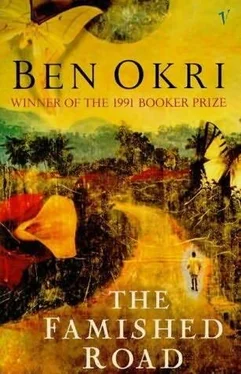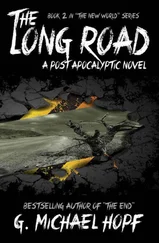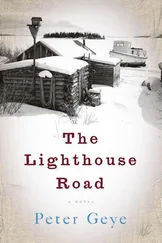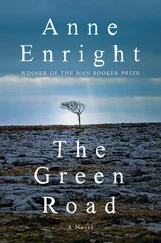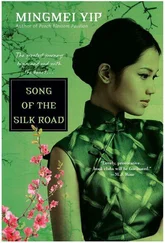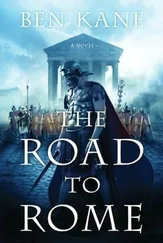Ben Okri - The Famished Road
Здесь есть возможность читать онлайн «Ben Okri - The Famished Road» весь текст электронной книги совершенно бесплатно (целиком полную версию без сокращений). В некоторых случаях можно слушать аудио, скачать через торрент в формате fb2 и присутствует краткое содержание. Жанр: Современная проза, на английском языке. Описание произведения, (предисловие) а так же отзывы посетителей доступны на портале библиотеки ЛибКат.
- Название:The Famished Road
- Автор:
- Жанр:
- Год:неизвестен
- ISBN:нет данных
- Рейтинг книги:5 / 5. Голосов: 1
-
Избранное:Добавить в избранное
- Отзывы:
-
Ваша оценка:
- 100
- 1
- 2
- 3
- 4
- 5
The Famished Road: краткое содержание, описание и аннотация
Предлагаем к чтению аннотацию, описание, краткое содержание или предисловие (зависит от того, что написал сам автор книги «The Famished Road»). Если вы не нашли необходимую информацию о книге — напишите в комментариях, мы постараемся отыскать её.
The Famished Road — читать онлайн бесплатно полную книгу (весь текст) целиком
Ниже представлен текст книги, разбитый по страницам. Система сохранения места последней прочитанной страницы, позволяет с удобством читать онлайн бесплатно книгу «The Famished Road», без необходимости каждый раз заново искать на чём Вы остановились. Поставьте закладку, и сможете в любой момент перейти на страницу, на которой закончили чтение.
Интервал:
Закладка:
– hobbling and crawling on the earth, each with their unique deformities, twisted legs behind their necks, soft legs uselessly trailing on the ground, heads big and strange with the agony of survival – were the rest of the family of beggars. I wanted to follow them on their journeys, to be with the beautiful girl who had refined all their deformities into a single functioning eye, whose face would pursue me in dreams and loves and music.
But Mum screaming in the crowd, Dad who was caught in a barrage of accusations, Madame Koto who was surrounded by enemy thugs, and Ade who wept bitterly on the ground, held me back and kept me rooted. I watched the beggars leave, and one aspect of my destiny left with them. And as they went I heard the wind rush, laden with all our sorrows, over the branches of the trees. The wind circled our heads. I saw the forms of angels in the dark sky. The yellow birds in our midst, startled by the new horrors of the smashed car, and by the aroma of blood, beat their wings and took off into that night of lamentation. And then, without any heavenly event, the rain began to fall. The rain fell on the devastated car, on Madame Koto who wept openly, on the thugs of both parties as they clashed and wounded themselves over obscure loyalties. The rain poured on the driver, who had now passed out, on the herbalists, who didn’t seem to know what to do, and on my friend, who had now become serene within his own pain. It was not the tragedy of the night that dispersed everyone. It was the rain. The thugs fought themselves right through different stratas of time. The soldiers left as a group, drunk on beer and the smell of cordite. The tramps, who had come because of the rumours of a feast, the people who had turned up to hail their new hero, the wretched and the curious, were all washed away by the gentle flood. Ade’s father left with his wives, carrying my friend away on his back. The chair-hire man stormed up and down the street, cursing Dad for the destruction of his chairs. The witches and wizards simply disappeared. I didn’t see them go. And the herbalists carried Madame Koto’s driver away for proper treatment. As the rain became heavier, the only people left at the housefront were Dad, who was distracted and drunk; Madame Koto, whose wig gyrated in a swirling puddle and who sat on the ground covered in mud; and Mum, who stood beside the car, blood and rain-water flowing round her feet. The blind old man was led home. His mangled accordion dangled at his side, as if it were an instrument that had been destroyed by its own bad music. Immobile and obscene, the car stayed smashed against the cement wall. Nothing could be done about it for the night.
The chair-hire man pounced on Dad. And Dad had to knock him down twice. He rushed off and came back with a machete and he had to be held. Dad swore that he would pay for the chairs or repair them himself. Disconsolate and drunk with rage, the chair-hire man had to be led home by four men. Madame Koto’s prostitutes came and tookheraway,holdingherby botharms,asifshemightdosomethingdangerous.In the distance she could be heard wailing, not about the driver, but about her car.
When everyone had finally gone, Mum went silently into the room. Dad had a long bath. I stayed at the housefront while the rain went on falling, staring at the flotsam of broken chairs, shattered glass, tatters of clothes and feathers, broken bottles, and chicken bones on the road. I think most of our real troubles began that night. They began not with the devastation of voices and chairs and the car, but with the blood mingling with rain and flowing right into the mouth of the road. I heard the slaking of the road’s unquenchable thirst. And blood was a new kind of libation. The road was young but its hunger was old. And its hunger had been reopened. The roads were not even flooded that night although the rain didn’t cease. For a long time I couldn’t see the sky. As I stood there the firm hands of the wind came from behind and lifted me up.
‘Come in,’ Mum said. ‘This is not a night for a child to see.’
Dad was asleep on the bed. I could hear his snores over the rain and the thunder. Mum lit a candle on the table. After we ate we stayed up. Mum said nothing. Both of us stared at the candle, feeling the wind and the thunder banging on our broken window.
BOOK SEVEN
ONE
THERE ARE MANY riddles of the dead that only the living can answer.
After the catastrophe of the party, Dad’s philosophy began to expand in strange ways. The spirit encroachment on my life increased. In many respects, and without knowing it, Dad kept the spirits at bay with his battles in different realms. But alongour road, there wasn’t much anyone could do. Fighting broke out all the time. In the morning after thedisastrousparty,MadameKotoorganisedsixthugstocomeandpushhercar to the mechanic’s workshop. We woke to the noise of confrontations. As the thugs pushed the car along a group of opposition thugs ambushed Madame Koto and her protectors and attacked them in retaliation for knocking over Ade.
I returned from school to hear that people were going around armed with clubs. Dad had returned early and was having an argument with the chair-hire man about the number of chairs that were destroyed. Mum also returned early because everywhere she went there were clashes between the warlords of both of the main parties. When the chair-hire man left, with some money, and a little mollified, Dad asked me to read. I read to him from Homer, while Mum vented her anger about the horrors of the celebration. The food that evening was quite tasteless. Dad didn’t notice. He ate with his usual large appetite.
His face had begun to return to normal. A new fierceness had entered his eyes. After I had read to him again from Homer’s Odyssey, Dad wondered aloud about how he was going to be able to do any good in the world if he didn’t learn more about politics, and didn’t infiltrate the existing organisations. It was around this time that Dad conceived the idea of using the ever-approaching rally as the platform to preach his ideas and gather voters. Then heremembered his notion of usingmeas aspy.
‘My son is not a spy,’ Mum said.
‘One way or another we are all spies,’ Dad asserted.
‘Don’t put my son in trouble.’
‘But he will make a good spy.’
‘Why?’
‘You won’t understand.’
‘That’s what you men say when you don’t want to tell the truth.’ Dad kept quiet. Mum complained about how Dad was using me for his mad schemes, about all the money wasted on the tragic party. But Dad didn’t listen. He called me and said he wanted me to resume visiting Madame Koto’s bar. He said he would join me later. I didn’t think he was serious. But later in the evening, as I sat outside watching the world revolve slowly with the movement of clouds, he came and reminded me of my mission. Hetoldmethatnewthingswerehappeningintheworldandinourarea.Was I not curious? I wandered off to Madame Koto’s bar.
Our road was changing. Nothing was what it seemed any more. Some of the beggars that came to Dad’s unfortunate party had set up at the roadside. One of them lay on a mat in front of the blind old man’s house. With his beads between his fingers, the beggar asked me for money as I went past. His eyes were hollow, his mouth was likeacurse. I hurried on. Thebushes alongtheroadsideweregettingwilder.Ayoung tree had fallen between the blind old man’s house and Madame Koto’s bar. The wind rose suddenly and when it lessened I could smell the small things rotting in the forest. As I neared the bar, with its bright new signboard, I heard loud voices and music from within. I stayed at the barfront. I wasn’t sure how I would be received. The car wasn’t there. A man came out of the bar, stared at me, spat generously on the bushes, and went back in. Shortly afterwards one of the prostitutes emerged.
Читать дальшеИнтервал:
Закладка:
Похожие книги на «The Famished Road»
Представляем Вашему вниманию похожие книги на «The Famished Road» списком для выбора. Мы отобрали схожую по названию и смыслу литературу в надежде предоставить читателям больше вариантов отыскать новые, интересные, ещё непрочитанные произведения.
Обсуждение, отзывы о книге «The Famished Road» и просто собственные мнения читателей. Оставьте ваши комментарии, напишите, что Вы думаете о произведении, его смысле или главных героях. Укажите что конкретно понравилось, а что нет, и почему Вы так считаете.
